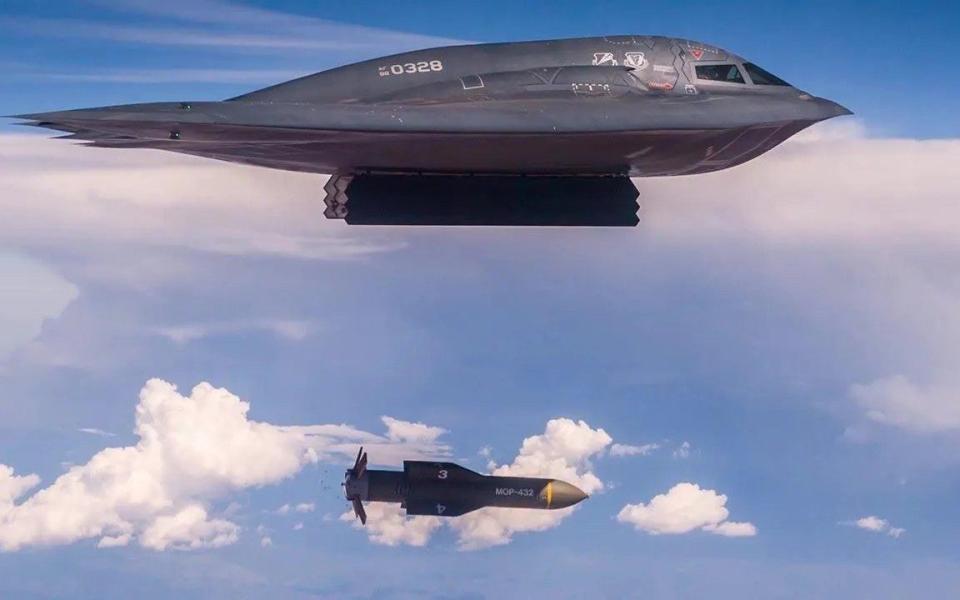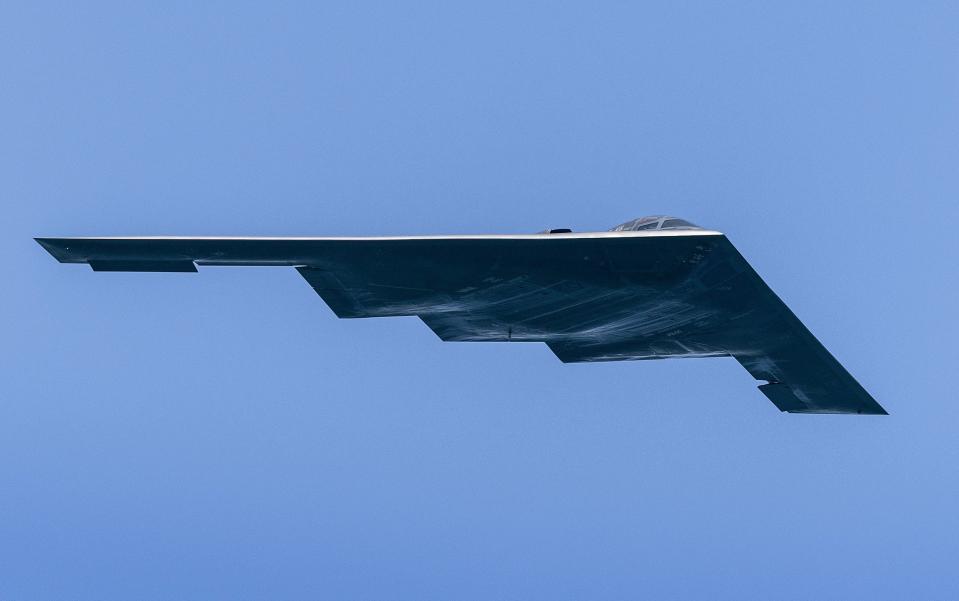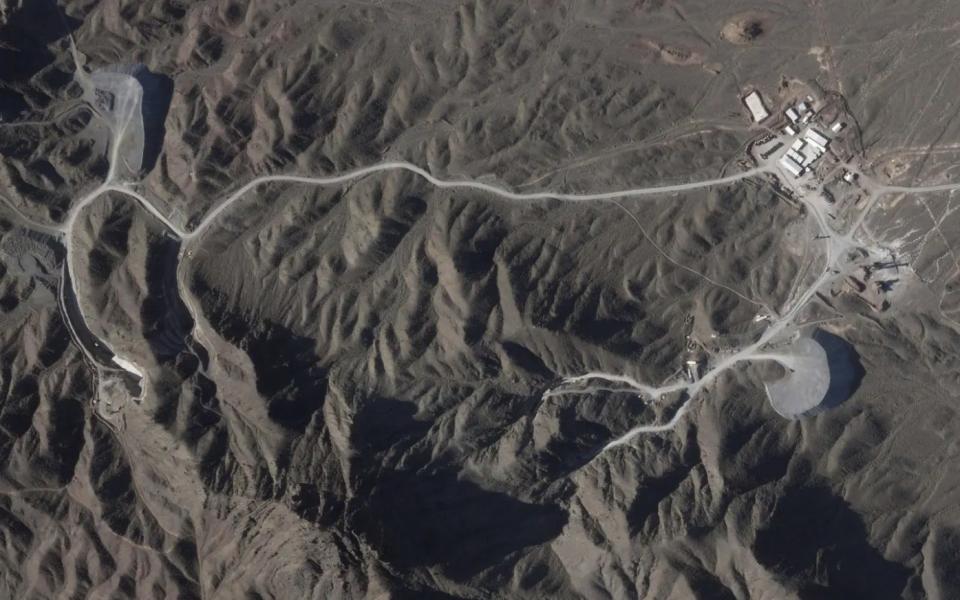Israel will not be able to attack Iran’s nuclear program without the US, Israel’s former prime minister has warned in an interview with The Telegraph.
Ehud Olmert said that Israel may not have the “capacity to break through the underground bunkers that are scattered in different parts of Iran”.
Instead, he suggested, an attack on Iran’s nuclear program should be carried out by the US with Israel’s help.
“Then the story is different. This should be an American decision,” Mr. Olmert said. He added: “There are many other targets for Israel that will be painful and important and may deter (Iran).”
Joe Biden says he does not support Israel’s strike on Iran’s nuclear sites in retaliation for 180 ballistic missiles fired by Tehran at Israel last week. But pressure has been building from Donald Trump, who said over the weekend he supported the strike.

Mr. Olmert also announced for the first time that when he made the decision as Israel’s leader in 2007 to launch an attack on Syria’s nuclear program, he had warned Gordon Brown, then British prime minister.
There were two world leaders who knew about the attack, Mr. Olmert said. “One of them is President Bush, who I’ve been asking for a long time.”
“The only other head of state I shared this information with was Gordon Brown. I told them about the atomic reactors in Syria and we are going to destroy them.
Governments and agencies, continued Mr. Olmert, responded to intelligence with gratitude. “He told us that he would never forget the trust that Israel placed in him, sharing this sensitive information before the military operation.”
‘No mutual respect’
But Mr Olmert is skeptical that Benjamin Netanyahu, Israel’s current prime minister, would share the same intelligence with Sir Keir Starmer, should the former decide to attack Iran’s nuclear sites.
“I don’t think there’s any respect on either side to justify or enable (it),” he said.
When asked about Mr Starmer’s decisions against Israel in recent months, such as the partial arms embargo, Mr Olmert said he did not agree with him, “but I understand”.
“I think (the embargo) is wrong, but we all know that it is very symbolic, because Israel is not dependent on military supplies from Britain,” Mr. Olmert said.


In 2006, Mr. Olmert launched the second invasion of Lebanon in Israel’s history, after Hezbollah launched a cross-border attack, killing three soldiers and kidnapping two others into Lebanese territory.
Forty-nine Israeli civilians and 121 IDF (Israel Defense Forces) soldiers were killed. More than 1,000 Lebanese were killed, including an estimated 500 members of Hezbollah.
The war ended with UN Security Council resolution 1701, which called for a permanent ceasefire and the removal of armed groups from southern Lebanon.
Hezbollah on the ropes
Now, with the Israeli military hitting Hezbollah on a daily basis in all corners of Lebanon, Mr. Olmert said the terror group feels “the enormous power that Israel can exercise, and they are not where they used to be a month ago”.

But continue the war for many more “not in the interests of Israel”, he added. “You have to ask yourself, what is the strategy? Now we don’t want to occupy Lebanon for another 18 years.
“So we want to go back to the international border. The question is not whether we can defeat them or not. The question is whether we can prevent them from going back to the border.
Mr. Olmert presented two ways Israel could prevent Hezbollah from returning to southern Lebanon. He said it was “strongly against” the first – pushing Hezbollah north of the Litani River and staying there with IDF forces.
Another option is to reach an agreement with Lebanon and Hezbollah to settle the border once and for all, Mr. Olmert said.
He added: “This requires a certain compromise from our side as well. I think we should strive for this instead of a military confrontation that cannot lead us to a permanent solution.
As the Middle East awaits an Israeli attack on Iran, Mr Olmert said he hoped it would not be the opening of a “broader confrontation”.
He said: “If it doesn’t happen, it could be the beginning of a new phase, reducing tensions and getting closer to the end of the war.”
Broaden your horizons with award-winning British journalism. Try The Telegraph free for 3 months with unlimited access to award-winning websites, exclusive apps, money-saving offers and more.




